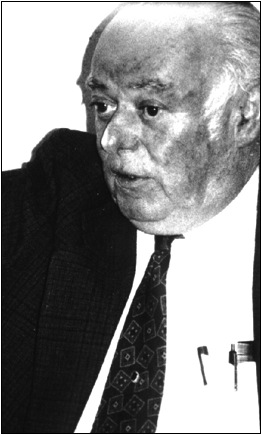
reading at UCCB and Centre Bras d’Or Festival – photo: Murd Smith
When asked to compare writing to any other of the arts, author Alistair MacLeod first points out that it’s a solitary life. Perhaps the only of the other genres one can compare it to is painting, but then sometimes even a painter has a model for company. An actor has not only an entire cast and crew for support, but also receives immediate response from an audience sitting only a few feet away. Not so, says MacLeod, for the writer. “Very often you’re in your attic or at your kitchen table for a long time, and therefore you really don’t know if what you’re doing is any good or not…”
It is to this end that Alistair MacLeod praises the Writers’ Ceilidh, as a group of like-minded people brought together to encourage and support each other’s work. He became involved with the Ceilidh at the request of founder Beatrice MacNeil, who he credits not only as a wonderful talent in her own right, but because she has encouraged others to participate in literary endeavours. In this forum, he says, parties can also judge, though not in a judgmental way, but by being honest and supportive. Because writing doesn’t offer immediate feedback, it’s very important to have a supportive group.
While Cape Breton’s literary output may mainly be known in song lyric form, MacLeod is quick to point out that there have been many great works grown from this land and he foresees an even greater flowering; a whole new crop of poetry, short stories and novels are to be the harvest.
Alistair MacLeod knows this process only too well. An award winning author, Dr. MacLeod’s books have been published all over the world, and in many different languages including Russian, Pakistani, Norwegian and Gaelic. His famous short story collection Lost Salt Gift of Blood is on the curriculum in many high schools across the nation. In this way the author not only brings the Maritimes to the world, but the world to our door. MacLeod maintains that this is not something he is conscious of while he’s writing. When he first began, he had no idea that his books would be in so many places.
“The good thing about that is that the experience that I’m able to render is understandable in France, and people in France read this and they’ve never been to Cape Breton, but they respond very well to it. So that means that you’re really dealing with, I think, with a specific place that has universal overtones. Literature can take place anywhere…people experience all the same emotions, no matter where they are. So if you can render it well enough, everybody who reads it will say ‘yes, I understand’.”
Alistair MacLeod is a soft-spoken and distinguished man with a kindness about him that makes him easily approachable, and agreeable to talk with. His love for words and writing come through every sentence and it is in this love that he likens his craft. “I think of what I work with as somebody being in love, you know, when you want to spend all your time with your loved one. And when people ask me, ‘are you ever going to set one of your stories in Los Angeles or New York, or Barcelona?’ and I say no. That’s not whom or what I love.”
In this sense the old adage “write what you know” holds true. Or perhaps it’s “write where you know”. It’s what works best for him. It’s what defines Alistair MacLeod. There’s no need to try to change yourself, he remarks, nobody has your fingerprints, so you must be true to yourself and who you are. Often asked to give advice to students, this is just one pointer he passes on. But he also wants to encourage young writers not to think of their age as a hindrance. “All great writer’s were once sixteen, although perhaps it’s hard to imagine Shakespeare as a sixteen year old. A lot of young people come and say ‘this is my first piece, so it’s not very good’ and that’s just not so, because they’re writing from the place where they are now and it’s every bit as valid as someone else’s work”.
This is another benefit of the Writer’s Ceilidh, encouraging writers of all ages to share their creations and gain confidence in doing so. And in this way, we build the writers of tomorrow.

